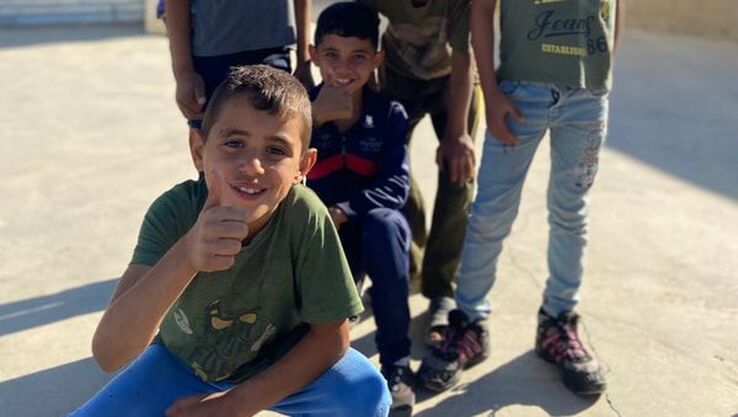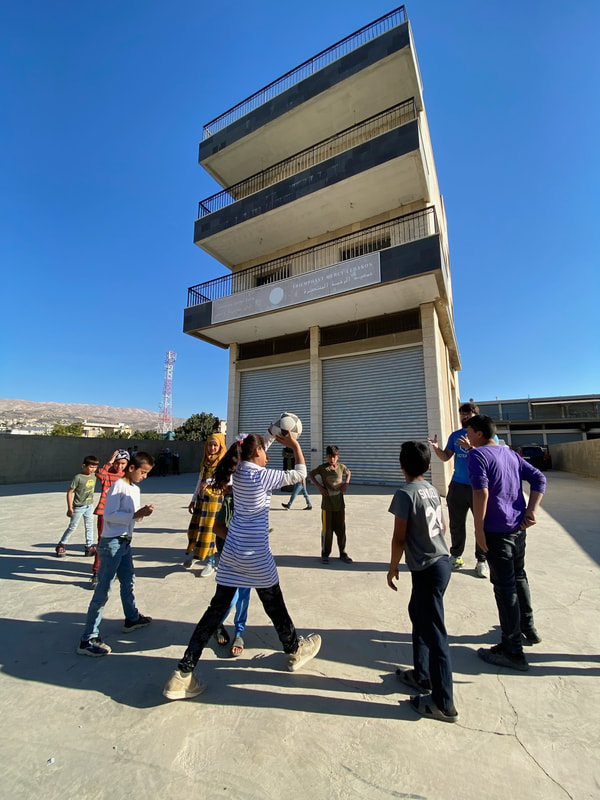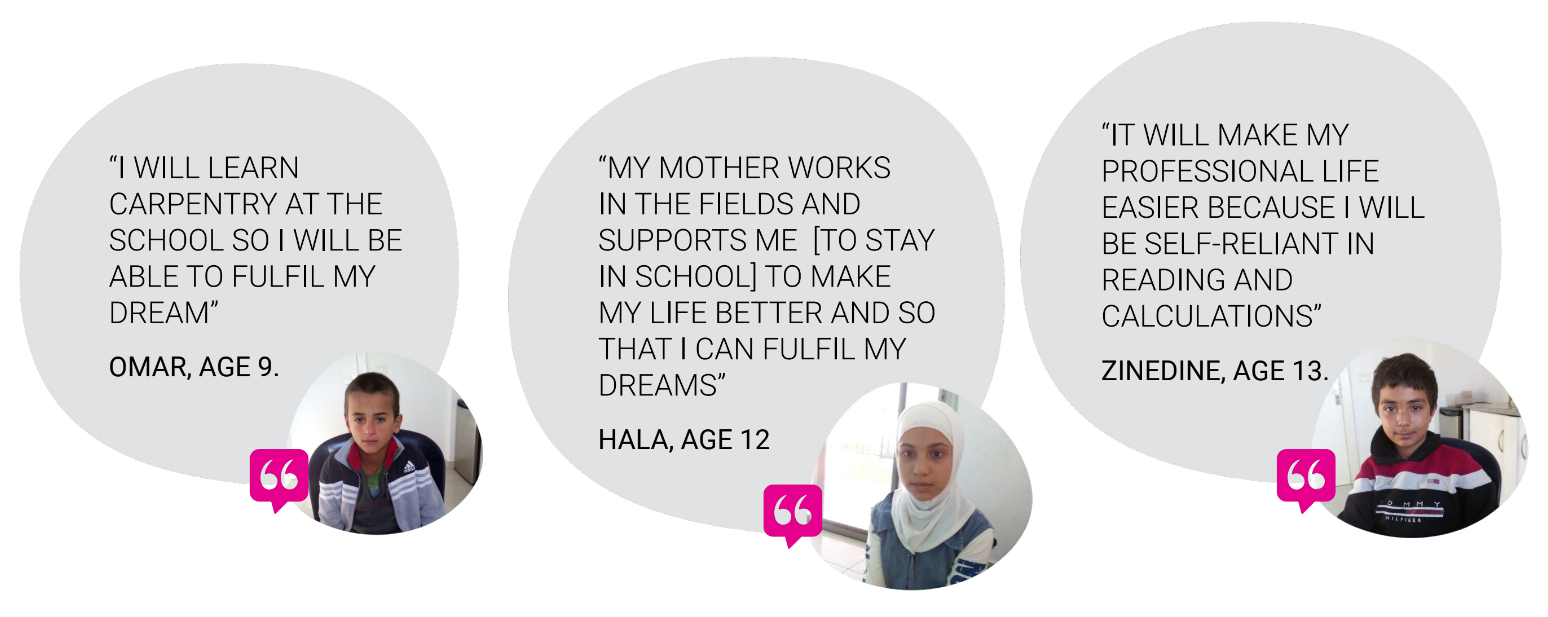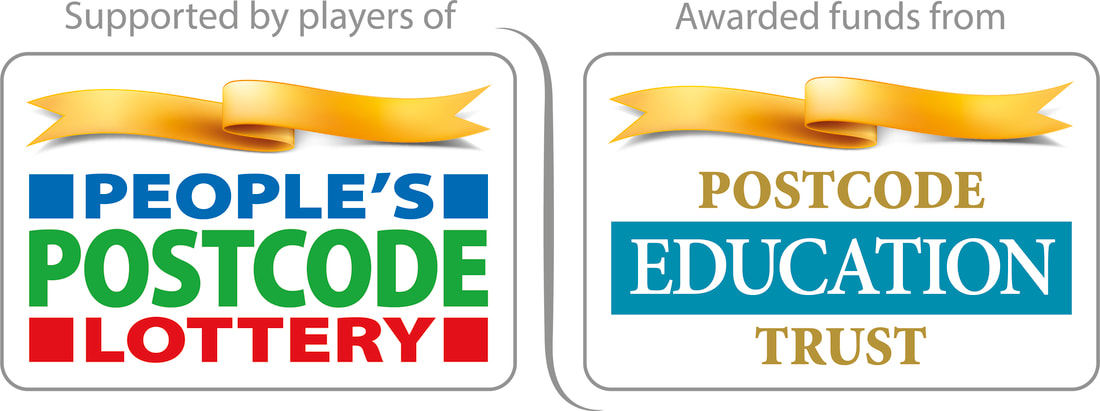|
As the political and economic crisis in Lebanon continues, refugees are struggling. Despite the difficulties, the children at the school we support in Zahle offers a safe haven for 173 refugee children. Read more about how they have grown in confidence this year and have hope for the future... Over the last few months, the ongoing political deadlock and the financial crisis in Lebanon (described by The World Bank as one of the worst in modern history), has resulted in increasing levels of poverty and desperation. There are now many Lebanese people, along with refugees, attempting dangerous journeys by boat to other countries to try and escape the terrible living conditions. For the first time there are now more Lebanese people living outside the country than within it. Refugees themselves are struggling with increasing poverty levels, which means that, although unthinkable in the past, they are now compelled to consider a return to Syria to survive, especially as many assume they will be forced back in the near future regardless. The Lebanese authorities are trying to encourage refugees to return to Syria by offering incentives for voluntary return (like covering transport costs), but human rights groups have expressed concerns that the scheme may not be entirely free from coercion and reprisals. For our partners in Lebanon, the crisis affects each and every part of what they do. Businesses are demanding payment in US dollars (including rent and basic utilities) which has caused prices to soar. As winter approaches and fuel prices continue to rise, there is much concern about how refugee communities will survive the cold. Last year we had to appeal for funds to provide families with fuel vouchers to stay warm. But despite the difficulties, the refugee children at the school we support in Zahle are at ease and their classrooms are providing a safe and protective space for them to learn and play. The school has safe, fun classrooms with a large play space outside. They are taught by Syrian refugee teachers in their own dialect, who are trained to deliver a bespoke Syrian and Lebanese curriculum. Staff use Montessori techniques to help children learn Arabic, maths, science, history, geography and English. The school also offers additional vocational training, so children can learn to dance, sew and take carpentry or computer classes. Teachers also offer trauma care, to help children recover from what they have been through. Children are being well prepared for the future, whether this is a return to Syria or a protracted stay in Lebanon. Recent interviews show that the children have grown in confidence and improved their self-belief this year. All the children interviewed said they join in during class, with 76% saying they join in 'very often', while 71% are happy to put their hand up in class to ask the teacher a question - the remaining 29% 'feel okay' putting their hand up. The children showed self-belief and confidence in their learning when asked what jobs they would like to do when they grow up. Most chose professional jobs - 38% wanted to be teachers, 29% doctors (83% of aspiring doctors are girls) - and others gave equally aspirational or ‘dream’ jobs. 13-year-old Zinedine wants to be a pilot so he can “see new places”, Yahya Mohammed, 11, a lawyer so he can “fight injustice” and nine-year-old Omar said, “A carpenter - I would love to build beautiful wooden houses.” Another indication of growing self-belief is that 71% of the children interviewed think it is ‘very likely’ they will be able to work in their chosen profession, with the remaining 29% thinking it is ‘quite likely’. All children think that their schooling will give them a better life, with the majority explaining that this is because it will enable them to complete their education and fulfil their dreams. One thing that may be helping to improve children’s confidence in their abilities, is that they are sharing what they learn in school with others outside of school, and using their learning at home. In fact, 100% of children said that they share their learning, with 71% saying they share their learning ‘a lot’, mainly with relatives. They commonly share maths and literacy, but also specifically mentioned letters, colours, shapes, typing on a phone, stories, games, sports, counting and drawing.
91% of children use what they learn in school at home, mainly by reading mobile messages for parents (most parents are illiterate), reading addresses and understanding prices and calculating costs at the market or in shops. Hadeel, age 12, said that the learning she uses most is “relating with others in a nice way”. Parents also described how their children help them thanks to their learning at school; “My children read the names of medicines in English and help me read phone messages" - Abdul “My children have learned reading, writing, values and hygiene” - Wardat When we interviewed children and parents, we found very positive views on teachers too. 90% of children said they love their teacher and 10% said they like them. All parents said that their children love their teachers and love going to school. Support us
0 Comments
Your comment will be posted after it is approved.
Leave a Reply. |
RECEIVE OUR EMAILSBlog Categories
All
Archives
July 2024
|
|
JOIN US ON SOCIAL MEDIA
|
Annual Report | Contact Us | Jobs | Media Centre | Resources | Shop
Accessibility & Policies: Accessibility | Equity, Diversity & Inclusion Policy | Complaints| Privacy Policy | Safeguarding
Accessibility & Policies: Accessibility | Equity, Diversity & Inclusion Policy | Complaints| Privacy Policy | Safeguarding
Children on the Edge, 5 The Victoria, 25 St Pancras, Chichester, West Sussex, PO19 7LT, UK | 01243 538530 | [email protected]







 Give monthly
Give monthly Fundraise for us
Fundraise for us RSS Feed
RSS Feed
